Sex Counselling and Education at the Institute of Sexology
The Institute offered a range of public advice and educative services
Public Lectures and Films
At the Institute, Hirschfeld and his colleagues gave public lectures on wide variety of topics including:
- Marriage and sexual counselling
- Provision of birth control
- Sex education for children/young people
- Information about abortion and its dangers
- He also showed films and distributed pamphlets/leaflets:
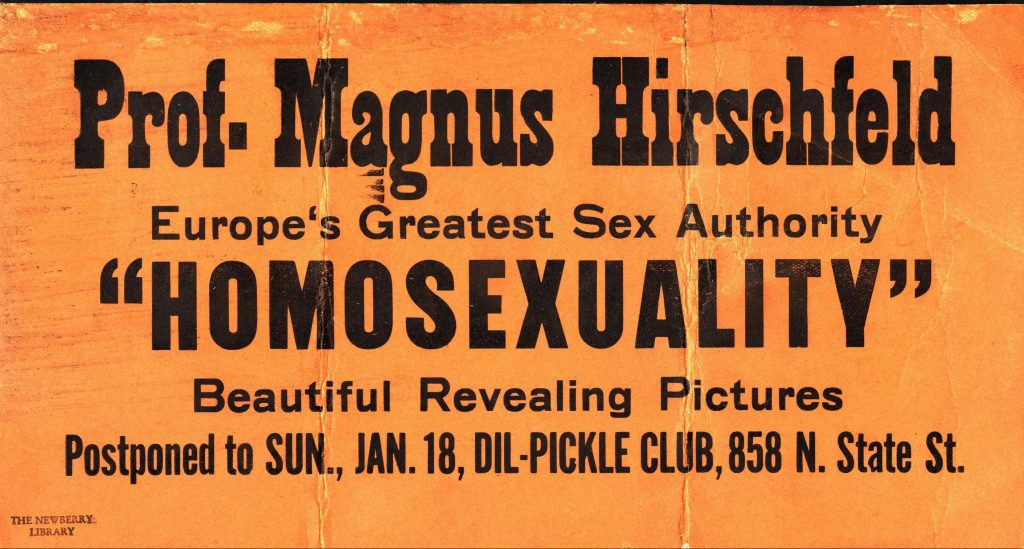
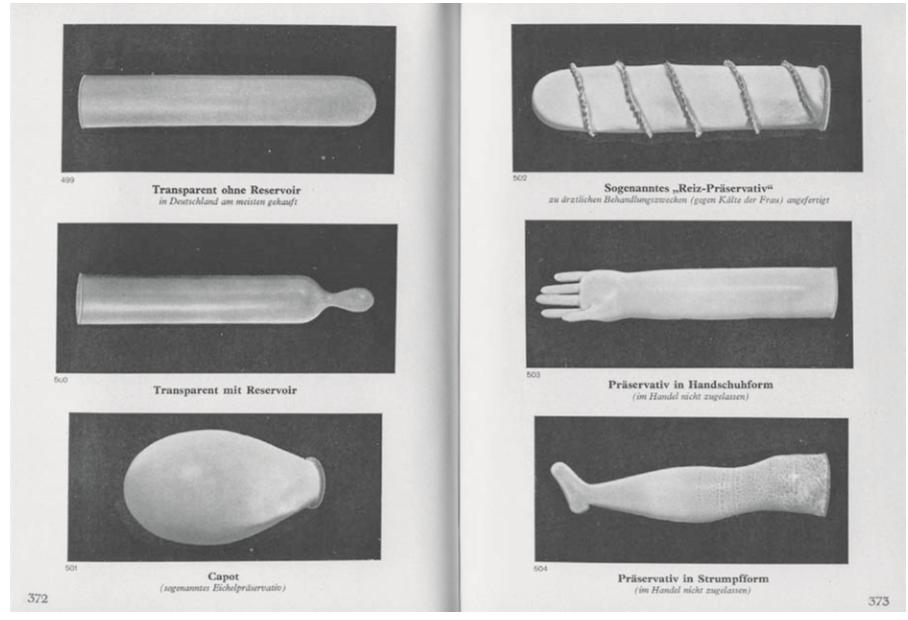
Sex Counselling, Birth Control and Sex Education
Hirschfeld provided a lot of advice to heterosexual couples. Married heterosexual couples came to Hirschfeld for counselling and marriage guidance or to receive information about birth control, for instance. In 1928 Hirschfeld published a guide to contraceptive devices, which sold over 100,000 copies in 4 years.
Selection of condoms – Magnus Hirschfeld Geschlechtskunde vol. iv Bilderteil, 1930
Sex Aids
This diagram shows how Hirschfeld tried to explain the effect of hormones on human sexuality. It suggests the separate impact of testosterone on the entire male body and oestrogen on the whole of the female body.
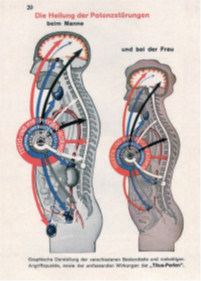
This was used to promote a medicine called ‘Titus Pearls’, a mixture of herbs from the yojimbe tree, thought to be an aphrodisiac and Testifortan, a hormone developed by Hirschfeld from bulls’ testicles. It was sold to ‘cure’ falling libido. It was particularly marketed at older people, to ‘rejuvenate’ their sexual desires.

Weekly Question and Answer Sessions
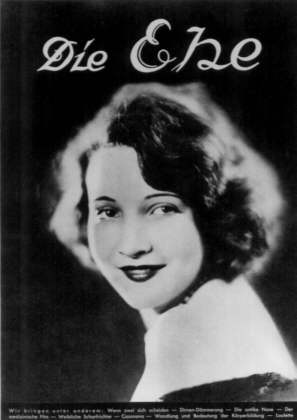
The educational lectures, films and leaflets were so popular that the Institute established fortnightly ‘Questions Evenings. There was a box inside the institute and people were invited to anonymously post slips of paper with the questions about sex that they wanted answering. At the Questions Evening, selected questions would be read out and answered. Questions covered a huge range of issues, for instance, what to do about premature ejaculation, what the secret to a happy marriage was, or whether condoms were effective in preventing pregnancy, as well as the questions around gender identity or sexual orientation that we often associate with the institute. This information giving was supplemented by two publications aimed at the general public: Die Aufklärung (which mainly involved explanations of contraception) and Die Ehe (on marriage). In this way, the Institute saw itself as a public information service.
Conference: 1921 World Congress for Sexual Reform
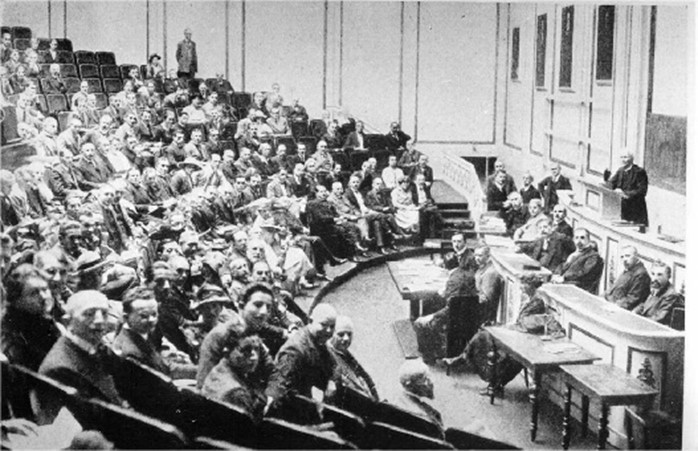
In 1921 the Institute staged an international conference to discuss sex reform. Scientists came from USA, Japan, Russia, London, Copenhagen, Italy, China and Argentina. Topics included: sex and the law, birth control, sex education and endocrinology.
Image: international conference on sex reform at Institute – Magnus Hirschfeld Society
